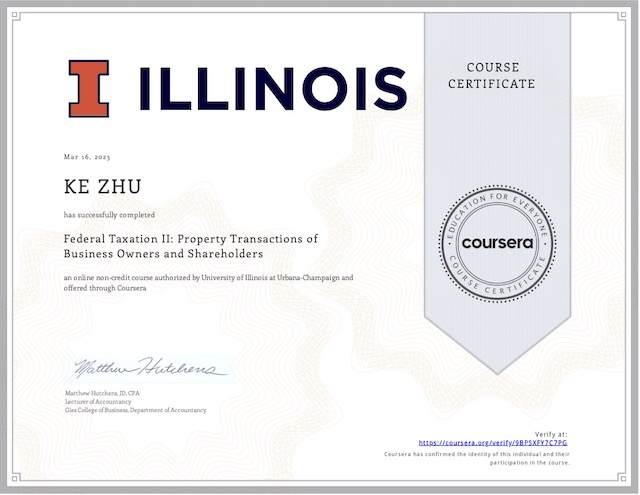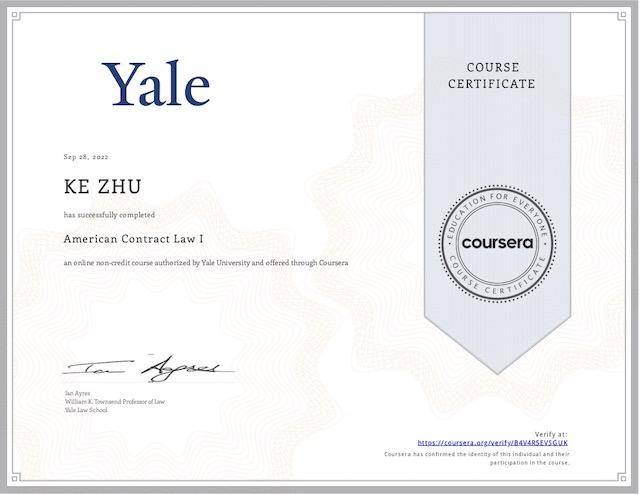Important tax issues arise throughout the corporate lifecycle: its formation, operation and liquidation. The formation of a corporation generally involves the transfer of assets and liabilities by one or more persons in exchange for stock in the newly formed corporation. Property Transaction IRC subchapter O: Gain or Loss on Disposition of Property defines the rules for property…
Category: Law
Corporate Income Taxation
Regular Income Tax Liability The regular tax liability calculation itself is very straightforward: The complexity of corporate income tax thus stems from the rules and regulations that shape and define the tax base, i.e. corporate taxable income. For tax years beginning after 2017, the Tax Cuts and Jobs Act reduced the corporate tax rate to…
Essential Concepts of Business Taxation
Origin of Federal Taxation The first income tax in the US was enacted in 1634 by the Massachusetts Bay Colony. The federal government however did not initially adopt this form of taxation; in part because it did not have the authority to do so. It was not until 1787 that Article 1 Section 8 Clause…
My 128th certificate from Coursera
Federal Taxation II: Property Transactions of Business Owners and Shareholders University of Illinois at Urbana-Champaign As individual or a business owner, have you ever googled questions like “Why are taxes so complicated?” There are quite many articles explaining the reason why. From the internet, I found this answer quite impressive: Our tax system could be…
Character of Gains and Losses, and The Netting Process
Recall there are a few key items when evaluating a property transaction: Also recall the holding period of a property technically begins on the day after the property is acquired and includes the day of properties disposition. Short-term holding period is where an asset is held for one year or less. Long-term holding period is…
Federal Taxation: Special Gain and Loss Provisions
In the last post, we looked at two major non-taxable exchanges: like-kind exchanges and involuntary conversions. In those transactions, any realized gain or loss is generally not recognized at the time of the transaction. Instead, realized gain or loss is deferred until some future point, usually when newly acquired property is ultimately disposed off. This…
Gains, Losses, and Non-Taxable Transactions
Overview of Gains and Losses At a very high level, it’s important to be able to calculate the gain or loss upon selling or exchanging an asset. Because, of course, gains are taxable and losses are deductible. That is, these kinds of property transactions will affect a business owners tax liability. In general, how do…
Depreciation, Amortization and Depletion
Cost Recovery What is cost recovery? For accounting purposes, businesses must capitalize the cost of assets, if the asset’s useful life is more than one year. Capitalization means that the cost of the asset purchase must show up on the balance sheet rather than as an expense on the income statement. What happens later is…
My #110 certificate from Coursera
American Contract Law IYale University We all enter contracts every day, contracting is never something only happens between firms or merchants, it is all over the place. When you order food at a restaurant, when you click Accept button on a website, when you make a promise, … probably your next act or utterance will…
Contract Law: Counteroffers, Irrevocable Offers, and Indefinite Terms
What happens when an offeree attempts to accept an offer while modifying the terms? In the case Minneapolis & St. Louis Railway v. Columbus Rolling-Mill, the court held that, “A proposal to accept, or an acceptance, upon terms varying from those offered, is a rejection of the offer, and puts an end to the negotiation,…
Contract Law: Assent, Offer and Acceptance
Mutual Assent Mutual ascent describes an agreement between two parties that intend to form a contract. Parties often have extensive negotiations before signing the contract. These negotiations happen over time that are subject to the parties’ choice and are not predetermined by law or circumstance. Individuals don’t have to be bound by contractual promises unless…
Contract Law: Consideration and Its Substitutes
Requirements Contracts & Output Contracts A requirements contract is a form of contract where a seller agrees to supply all of a purchaser’s requirements in exchange for a promise that the purchaser will buy exclusively from that seller. An output contract is, in a sense, the reverse situation. A buyer agrees to purchase all of the supplier’s…
Contract Law: Promise and Consideration
Recall that consideration is a traditional prerequisite for forming a contract. When it comes to a promise, the court might find that there was consideration, like in the classic chestnut of case Hamer vs Sidway. However in the case Kirksey vs Kirksey, the court considered a promise that lacked consideration, which is called a gratuitous promise….
Contract Law: Unconscionability, Performance and Remedies
Unconscionability Can courts declined to enforce unconscionable contracts? And how to decide whether contracts are unconscionable? If the court finds as a matter of law… any clause of the contract to have been unconscionable at the time it was made, the court may refuse to enforce the contract… Uniform Commercial Code, 2-203 According to the UCC, the…
American Contract Law: Essentials
The law of contracts is both judge made (based on past decisions) and legislature made (based on statues), all 50 states have enacted major parts of the Uniform Commercial Code or UCC. The UCC governs the sale of goods. The contract to pay money for a service, is likely to be governed by common law,…














